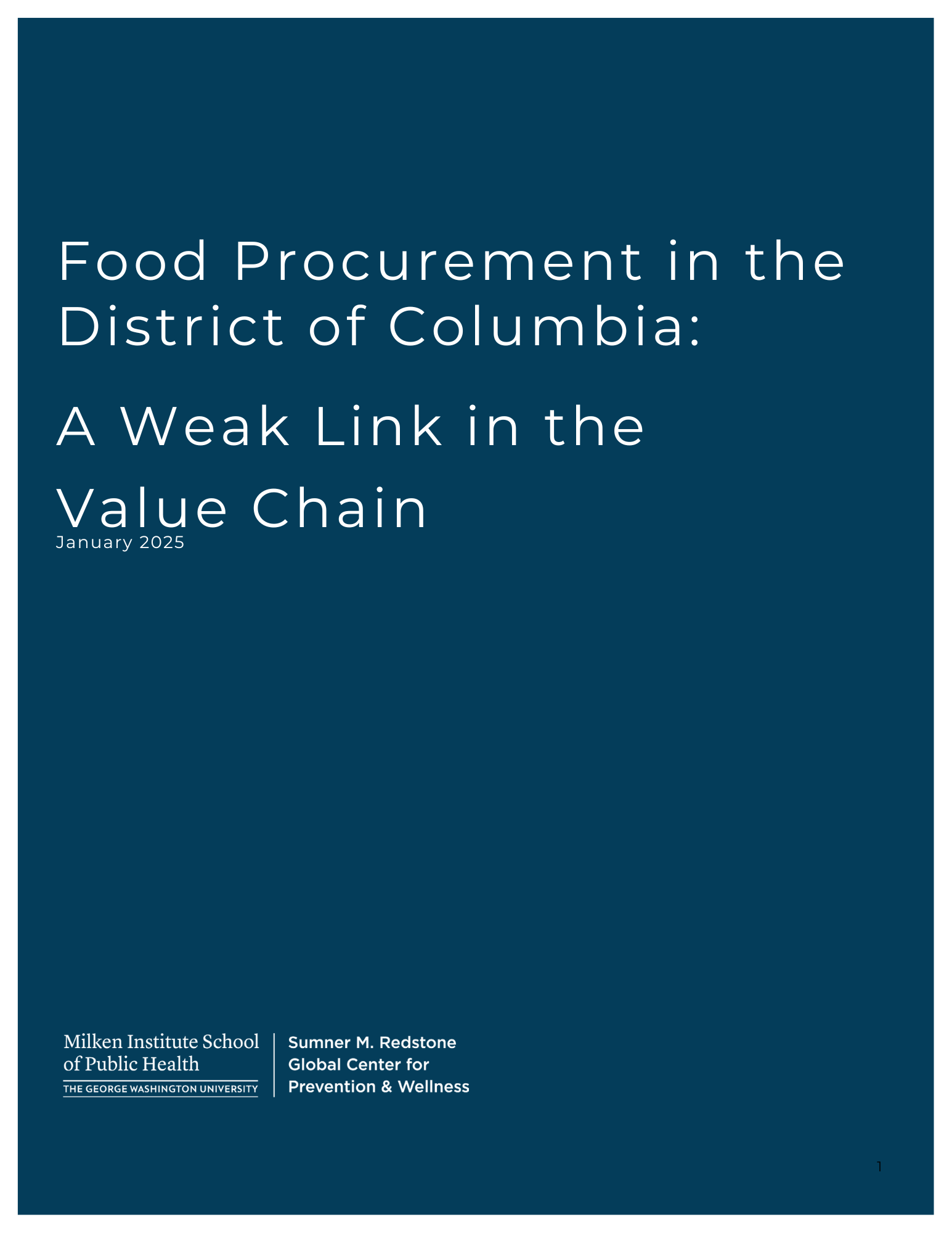Sumner M. Redstone Global Center for Prevention & Wellness
advancing public health adaptation and disease prevention strategies through
Research, Education, & Collaboration
Located within the Milken Institute School of Public Health (GWSPH) at the George Washington University (GW), the Sumner M. Redstone Global Center for Prevention and Wellness (RGC) is dedicated to fostering healthier communities by addressing the critical intersections of chronic and infectious disease prevention, public health, and climate change with an emphasis on marginalized populations. Over the past decade, the RGC has advanced this mission through policy analysis and advocacy, research, and community-driven initiatives that address health promotion and climate change mitigation.
The RGC envisions a future where communities—especially those most at risk—do more than react and survive climate-related health hazards, they adapt and thrive.
Our Current Focus
Climate change is a present and growing crisis, and its effects are not felt equally around the globe. Communities with reduced access to resources and diminished control over environmental and social conditions are often disproportionately impacted by climate-related health hazards and risks. Our new strategic plan focuses on rigorous research, accessible education, and meaningful, cross-sectoral collaboration to ensure that climate adaptation strategies are equitable, grounded in evidence and shaped by those most impacted.

Our Past Focus Areas
Sustainable food systems provide food and nutrition security while also limiting negative impacts on the environment. A sustainable food system that provides access to nutritious food for all is essential to ending chronic health disparities and addressing the food system's contributions to climate change.

Healthy communities are supported through design and investments in the built environment that improves physical and mental health by decreasing car dependence, promoting physical activity, improving air quality, increasing social connection, and reducing greenhouse gas emissions.

Redstone Upcoming Events
Seminar with speaker
Dr. Kevin De Cock
Mark your calendars for our seminar on March 5 co-sponsored by the GWSPH departments of Epidemiology and Global Health with Kevin De Cock, who will present his book, Deployed: A Physician on the Front Lines of Global Health. An announcement with event details will be shared closer to the date.
redstonectr![]() email [dot] gwu [dot] edu (Registration link coming soon)
email [dot] gwu [dot] edu (Registration link coming soon)
GWSPH Research Day 2026
The RGC is a proud co-sponsor of the 2026 GWSPH Research Day, taking place on Wednesday, April 15. The Climate and Health Institute and RGC will jointly award the best abstracts/posters in the Climate and Health category. This award recognizes work that addresses topics at the intersection of climate change and health, and advances solutions for mitigation, adaptation, and health equity. Submissions may address diverse health outcomes and populations and may use innovative data, communityengaged approaches, or locally led strategies to improve public health in the context of climate change.
Explore Redstone Features

Forced displacement of large populations around the globe has triggered rising concern about the consequences for human health, according to a working paper published on September 25, 2025. The authors conclude that the health impacts of forced and environmentally induced displacement are a humanitarian priority, and the US must continue providing global health assistance to avert deaths and promote safety and security in the United States and abroad.

In the Driving Change White Paper, the RGC examines the direct harms of vehicle traffic on public health in the District of Columbia and how road pricing strategies can be utilized to help reduce chronic disease inequities, support a robust public transportation system, and advance the District's carbon neutrality goals

The District of Columbia is ranked as having the #1 park system in the country. The RGC's NPS Report found that park management by the National Park Service has resulted in great inequities in amenities, maintenance, and park access across the nation's capital.

Read the Food Procurement Report
The District of Columbia spends millions per year on food procurement, feeding tens of thousands of children, seniors, and vulnerable residents each day. The RGC's new report examines current procurement policies and practices to identify barriers to implementing better food procurement in the District.

The RGC is proud to support the work of Redstone Fellow Uriyoán Colón-Ramos, Sc.D., M.P.A. and her research to help shift family drinking habits away from sugary drinks in the Washington metropolitan area.

The Glasgow Food and Climate Declaration recognizes that cities are leading the way to drive food system change through cross-cutting policy approaches. This policy brief details the many opportunities for the District to meet or exceed its ambitious climate goals.








